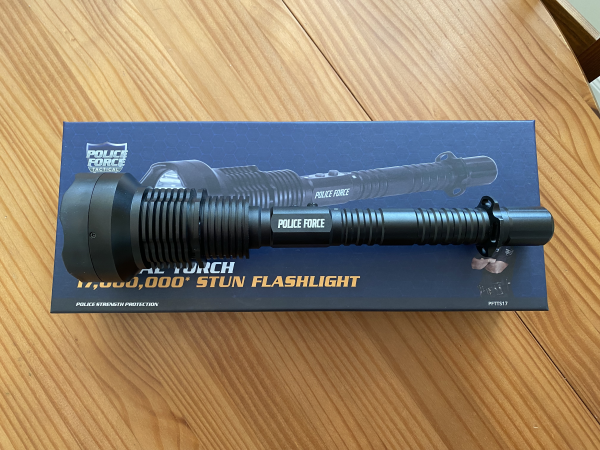
You've found the right place if you're looking to learn Brazilian Jiu-Jitsu in Madison, Wisconsin. These are three amazing schools you should visit. Combatives 101 is recommended if you are looking for Brazilian Jiu-Jitsu. You can expect to see a lot more action and live situations. Combatives 101 will teach you basic self defense skills in the real-world.
Martial arts schools in Madison (Wisconsin)
Madison's martial arts schools are a great place to start fighting. Martial arts can teach you how to defend yourself against an attack, or to self-defense to protect your family. You can find martial art classes for children and adults, and even one in your local area. Whatever your needs, you will find a Madison school offering a wide variety of programs that suit everyone.
Martial arts schools that teach self-defense classes
If you are looking for a Madison, WI martial arts school that offers self defence classes, make sure to consider walls and padded mats. A free introduction class will help you get to grips with the style. You can also ask about the studio's experience and reputation. To find out if the school is right for you, you can visit them for a test class.

Chris Martingilio holds a six degree black belt in Martingilio Martial Arts. Small classes allow for individual attention and ensure that every student is given the best possible instruction. Students are encouraged not only to attain high standards but also to develop self-confidence, mental toughness and self-defense skills. The school's classes are great for a variety of skill levels, and students often gain skills that will serve them for the rest of their lives.
Brazilian Jiu-Jitsu classes are offered by Martial Arts Schools
If you're looking for a martial arts school that offers Brazilian Jiu-Jitsu classes in Wisconsin, you've come to the right place. There are many options. The Madison Martial Arts Cooperative offers classes for adults and children of all ages, including kids karate, street smart self-defense, and martial arts for women. You can also take private lessons or try the school for a free period.
The Journey Brazilian Jiu Jitsu Academy, Madison's top Martial Arts school, is a popular choice. This academy offers classes for both children and adults. The academy offers traditional Brazilian Jiu-Jitsu classes as well as self-defense skills. Classes are offered regularly, since the academy was established in 2019. The students benefit from a structured schedule, as well as a supportive environment.

FAQ
Should I keep guns?
Yes! Gun ownership is a right protected under the Second Amendment. However, it's important to remember that not everyone has the same right to own firearms. Persons with mental illness, for instance, are forbidden from owning firearms.
A firearm can save lives. In fact, according to the CDC, between 1999 and 2016, there were over 33,000 deaths due to unintentional shootings.
The good news is that concealed weapons are allowed in most states. So, even if you aren't allowed to own a gun, you still have the option of carrying one around with you.
How long should a survival kit's supplies last?
It's best to always have emergency supplies handy in order to be prepared for any eventuality. It is not a good idea to go without supplies in case of an emergency.
If you are going camping, for example, then you need to pack everything you might possibly need into one small backpack. You should have enough food, water and emergency supplies such as first aid kits, fire starters or matches, tools, and any other essential items.
You also want to include a flashlight, map, compass, whistle, and other important items. These items will help to keep you safe and assist you in finding your way home if lost.
These supplies can be kept in a waterproof bag, box, or bucket. When you are hiking, ensure that your supplies are easily accessible and won't be lost.
Consider the things you'll be using most often, and how much space each one takes up when packing. You can add extra items to save space if you have it. If you're planning to spend a lot of time outside cooking meals, consider adding a stove or pots and pans.
It is important to keep track of where you have placed your supplies. You will be limited in the things you can do once civilization has returned.
What do I need to know before starting my doomsday prep?
First, gather information about the area. What kind of natural disasters can happen in your region? Are there any major dangers?
You should consider purchasing flood insurance if your home is in a flood zone. Flooding is one of the biggest threats to life during a crisis.
You may need tsunami insurance if you live near the coasts. Tsunamis are caused by underwater earthquakes. They often occur without warning, so it's best to be prepared.
Next, consider how long you will be able to survive on your own. How long can you survive on your own?
Will you only be gone for a few days? Or will your absence last for weeks or even months?
Is it possible to live alone? If you are, you will need to bring a weapon. It doesn’t matter if it is a gun oder a bow & arrow. Just make sure you're comfortable using whatever tool you decide upon.
In addition to weapons, you'll also want to include tools like a shovel, axe, saw, hammer, nails, rope, and other items. These are things that you could use to build shelters or create makeshift weapons.
Additionally, you will likely need to stock up on food and water. You should ensure you have enough food and water to last several days.
Remember, you don't always need to buy every item on this list. At the very least, you need to get started.
Which canned food is best for survival?
It is not always the most nutritious canned food. It all depends on what you're looking for. Beans are good for energy. Meat is better for protein.
You should look for high-quality nutrition if you are searching for nutrients.
How can I begin survival preparation?
Start with an emergency plan. An emergency kit should include food, water shelter, medical supplies, and basic necessities. Then add items that help you stay safe and secure.
Also, consider adding a flashlight, compass and whistle to your solar-powered radio. You might also consider fishing equipment if your home is near rivers, lakes, and streams.
A bug-out kit (BOO) can be a great way of preparing for an emergency. It is a backpack that contains essential gear. Some BOOs contain a tent, sleeping bags, firestarter, stove, pot, cookware, utensils, batteries, flashlights, first aid kits, toiletries, and more.
There are many options to prepare for disasters. Start with these basics and expand your list based on your own situation.
Statistics
- A gravel bike was the clear winner, receiving more than 90 percent of the votes. Background: This summer, we surveyed our readers about what they’d shove into a backpack if they were caught unprepared for the collapse of society. (inverse.com)
- Approximately a hundred and seventeen million people earn, on average, the same income they did in 1980, while the typical income for the top one percent has nearly tripled. (newyorker.com)
- In the first ten months of 2016, foreigners bought nearly fourteen hundred square miles of land in New Zealand, more than quadruple what they bought in the same period the previous year, according to the government. (newyorker.com)
External Links
How To
How to find potable water in a survival situation
It is possible to save your life if you are in an emergency situation that requires water. It is essential to learn how to find potable drinking water quickly and efficiently when you're in survival situations. You must ensure you have enough water for survival until help arrives. Lack of clean drinking water can cause dehydration, which could lead to death.
We'll be sharing some tips to help you find potable water in a crisis. We will discuss the different types of water available and which are most suitable for each situation. We'll talk about how to filter dirty water and purify it so you can drink it safely. The last thing we will discuss is how to store water.
What Types Of Water Sources Do You Have?
You'll find water sources all around you when you go out into the wild. These could include streams, rivers, springs and oceans. These water resources may be available all year round depending on where you live. To choose the right type of water source for your specific location, you'll need to consider several factors.
First, you'll need to determine if you'll have an opportunity to collect fresh water. This means you'll need to consider whether you'll have easy access to a stream, lake, river, pond, spring, ocean, or rainwater. Second, consider whether or not you have access to clean water. It is best to avoid drinking water that has been contaminated by feces and urine. Third, you'll need to think about how much water you plan on needing. You will need to consider how long you are going to be out of your home, how dry and hot it is, what size your family is, and how many people you have. Fourth, figure out how you are going to transport the water. It can be difficult to get water from some sources. One example is carrying a large water container up a steep hillside. It is also important to consider weather conditions when selecting water sources. While a stormy day may mean you should not rely too heavily on rainwater to get water, a sunny day might permit you to collect water without concern about it being contaminated.